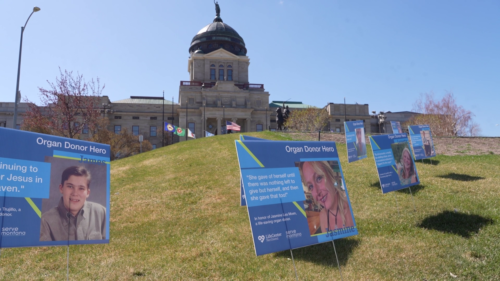Life-saving organ and tissue donations continue amid a pandemic by embracing mission-focused innovation and partnership
June 30, 2020. Transplant procedures across the nation – and the world – slowed in March and April at the early stages of the COVID-19 pandemic. However, organ recovery and transplantation continued under the guidance of The Centers for Medicare & Medicaid Services, which classified transplant procedures as “do not postpone” – the highest urgency level. As the organ procurement organization (OPO) serving Alaska, Washington, North Idaho, and Montana, LifeCenter Northwest was poised and ready to continue its operations in organ recovery despite early challenges, including hospital access, potential shortages of ICU resources like ventilators and PPE, and flight delays and cancellations.
“Our ability to put together this program that allowed for rapid, real-time testing of both the donor and the recipient allowed transplant surgeons and transplant teams to feel comfortable,” says Dr. Ajit Limaye, director of the Solid Organ Transplant Infectious Disease Program at the University of Washington. “There’s still a myriad of other challenges due to the pandemic, but at least this concern that the recipient might contract COVID-19 through organ donation is mitigated by actual data.”
Furthermore, transporting organs beyond the designated service area has contributed to more life-saving organs being successfully utilized and transplanted. More than 36 percent of organs recovered this year by LifeCenter Northwest were transported to regions beyond its designated service area.
“Given the quality, we’re very aggressive on what we’ll move forward on, as far as donors,” says Heather Brownell, surgical recovery coordinator for LifeCenter Northwest. “We send a lot of kidneys to aggressive transplant centers nationwide. Many of these national centers will transplant kidneys that are less than perfect for an older patient to get them off dialysis so they can have a better quality of life.”
Organ transport is dependent on the organ type and the location of the accepting transplant center, and can include a variety of travel options including chartered and commercial flights, specialty courier service, and local transport by ambulance. For long-distance kidney transport, a courier service coordinates care of the organs as special cargo on commercial flights. When commercial travel was reduced by 70 percent in the region due to the public health crisis, a LifeCenter Northwest employee provided unprecedented door-to door service to facilitate the donation and transport of kidneys from a one-month-old donor. This precious gift was personally escorted from Seattle, Wash. by commercial flight and taxi to an out-of-state transplant center to ensure a safe arrival. This special effort enabled the grieving family to make a meaningful decision and offer the gift of life to another child in need.
LifeCenter Northwest is on track to meet or exceed the organization’s life-saving goals for 2020. Year to date, the organization has facilitated organ donation from 141 deceased donors, an increase of four donors in the same period for 2019, resulting in 367 lives saved.





